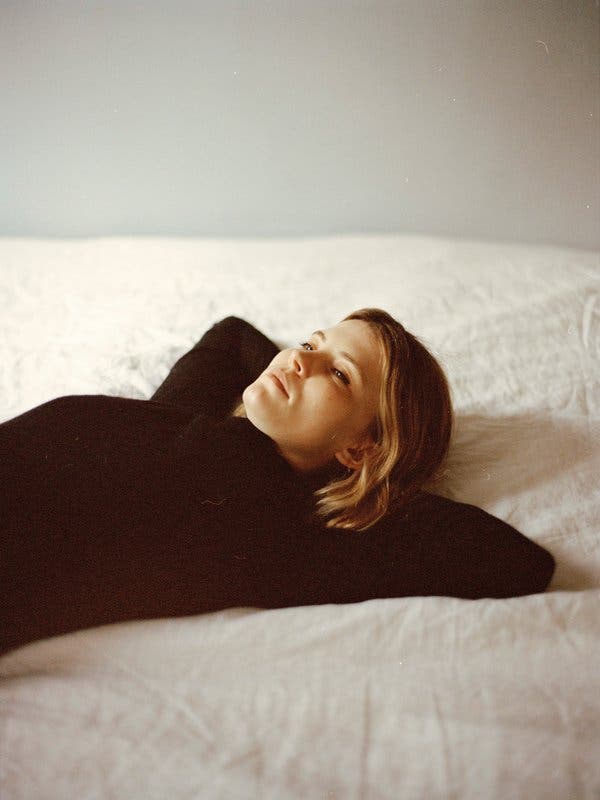
“I’m not one of those writers who say that love is not for them, but the truth is that my work has been more of a partner to me than any person has been so far.”
Texts mentioned below:
Glory, Vladimir Nabokov
Down Girl: The Logic of Misogyny, Kate Manne
Another Country, James Baldwin
The Making of a Terrorist, Lucinda Franks and Thomas Powers
I’m on a train headed to Niagara Falls and as I wait for my stop to be announced I think about the moon and California. When I get off the train in Albany, three students of Kathleen Alcott’s are there to pick me up and drive me to Bennington College.
“What is Kathleen like as a professor?” I ask them as we make our way north.
“She’s so incredibly intelligent,” they tell me. Sometimes, they say, she tears up in class while reading a particularly intense passage of a book aloud. “She taught me a new way of reading, of looking at things,” one says.
Kathleen is waiting for me in her temporary office in the music department—there was a fire on campus a few days earlier, and her office building is now closed for maintenance. When I arrive, a violin and a flute are playing somewhere. The room is bright, with a piano, a wooden desk, a blackboard, two brown leather armchairs and an antique bathtub I get a glimpse of in the adjacent bathroom. I can see the park from the windows, everything outside is green. Kathleen is wearing a burnt-brown vest and pair of trousers, and it feels as if the entire scene, her, the room, had been carved in mahogany and cherry wood.
It’s early May, 2019, and I came to Bennington to talk about Alcott’s latest novel, America Was Hard To Find. Her first two, The Dangers of Proximal Alphabets (2012) and Infinite Home (2015) came out when she was 23 and 25 years old, respectively.
America Was Hard To Find—a book that’s very different from her previous work—is the story of Fay Fern, a woman who becomes a left-wing terrorist during the Vietnam War, and of Vincent Kahn, the first man on the moon. It’s also the story of Wright, the son born from the affair they had in a previous life, when Fay and her sister ran a bar in the Mojave Desert in California and Vincent was a married pilot training at the nearby Edwards Air Force Base, before NASA, the Apollo missions, and everything else.
In the summer of 2018, I found myself reading the manuscript of America...
You have reached your article limit
Sign up for a digital subscription and continue reading all new issues, plus our entire archives, for just $1.50/month.
Already a subscriber? Sign in




